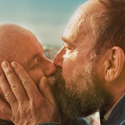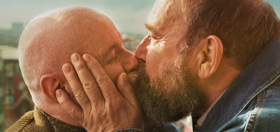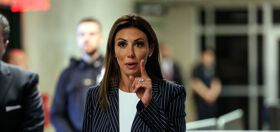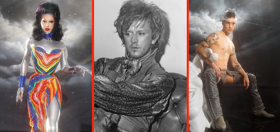
The judiciary is failing to reflect the UK’s gay and lesbian community, experts say, as research suggests it is seriously under-represented on the bench.
Research by the lesbian, gay, bisexual, and transgender (LGBT) law network Interlaw has found that judicial culture, the perception of hostility to gay judges and the isolated nature of the job are deterring gay and lesbian lawyers from applying for careers as judges.
The study also suggests that gay and lesbian lawyers fear that their private lives may be subject to additional scrutiny if they were to become judges. “The judiciary and sexuality are uneasy bedfellows,” said Les Moran, professor at Birkbeck, University of London, and one of those behind the study. “It is a myth that sexuality has nothing to do with the judiciary … The deafening silence on the importance of sexual diversity in the judiciary is an institutional culture that has to stop.”
How about we take this to the next level?
Our newsletter is like a refreshing cocktail (or mocktail) of LGBTQ+ entertainment and pop culture, served up with a side of eye-candy.
The preliminary findings, which have been made public for the first time, were provided to Liberal Democrat peer Lady Neuberger, whose review of diversity in the judiciary was released earlier this year.
Although Neuberger’s report referred to increasing sexual diversity in the judiciary, the Judicial Appointments Commission (JAC) ? the official body responsible for appointing judges ? has still not collected any data on the number of gay and lesbian judges. “Sexual orientation has been singled out as different from other strands of diversity and as ‘not relevant’ to the judicial institution,” said Moran. “This leads to an official ‘don’t count it’ approach.”
Sexual diversity in the judiciary has been a controversial issue for years. In the 1970s, the then lord chancellor, Lord Hailsham, formally excluded gay and lesbian lawyers from entering the judiciary, by allowing only married people to be appointed to the bench.
The practice was only ended in 1991, when the then lord chancellor, Lord Mackay, allowed unmarried people to become judges. However, there are still few openly gay judges. Court of appeal judge Sir Terence Etherton, high court and international criminal court judge Sir Adrian Fulford and circuit judge Jeremy Richardson are among the few judges in England and Wales known to be gay.
“We have no idea how many gay and lesbian judges there actually are,” said Daniel Winterfeldt, partner at law firm Simmons & Simmons and founder of Interlaw. “We only know of a handful ? around five at the most, and some of those only by hearsay. It’s clearly a mark on the profession that so few gay and lesbian judges feel able to be visible.”
“One of the problems for the legal sector is that there isn’t really a level of acceptance yet around the need for sexual diversity,” said Pat Corcoran, head of diversity and equality at the Law Society.
The JAC said it was concerned with the under-representation of LGBT judges, but that its diversity strategy focused on encouraging solicitors, women, ethnic minorities and people with disabilities to become judges.
“We have targets for increasing applications from these groups and we monitor their progress through our exercises,” said a spokesman. “We encourage applications from all good candidates, whatever their background and then we ensure the process treats all with absolute fairness.”
The JAC’s stance has caused tension among lawyers in the LBGT community, as the future of the body’s role also comes under scrutiny. Last month, the justice secretary, Ken Clarke, announced a review of the JAC’s role.
“The appointments process must fully respect and maintain the independence of the judiciary, and appointment on merit must remain absolutely at the heart of the process,” said Clarke. “These principles will underpin the review.”
guardian.co.uk © Guardian News and Media Limited 2010



















Qjersey
Wow new partnership with the Guardian…and no typos, bad grammar or juvenile snark.
Solicitors Birmingham
How amazing is it that the system which enforces employment rights is just as bad as those it prosecutes.
Should there be a separation between coupling up Gay and Lesbians into the same group constantly?
Different sectors have different prejudices, It annoys me greatly when I hear employers say ‘We have ticked our homosexual box, we have a gay guy here’. That’s great news for the gay guy, but what about professional lesbians? Whom could be considered more of a threat than there assumed feminine counter parts.
But again this labelling bothers me, I would not want to be the ‘black’ person in the organisation no more than I would want to be ‘the gay one’. Perhaps this is why so few lawyers aren’t out.
the crustybastard
IIRC, there are only two openly gay federal judges in the US.
Both female, one black — for what that’s worth.